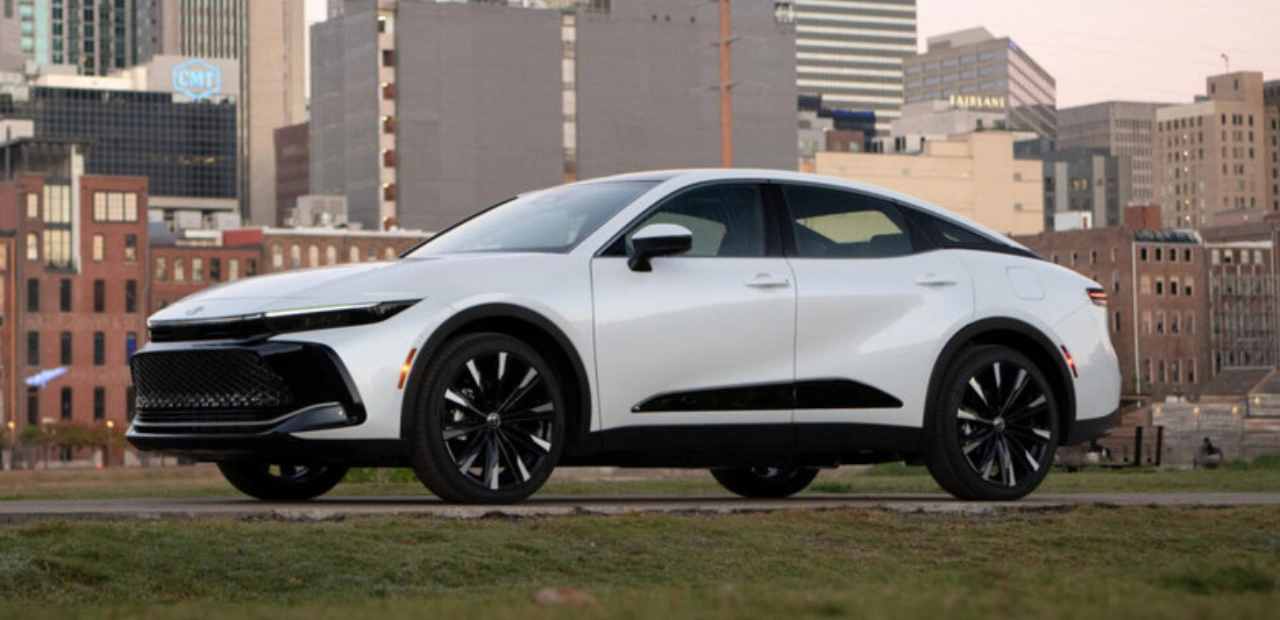The benefits of hybrid cars

Environmental friendliness: Discover how hybrid cars contribute to reducing emissions and minimizing environmental impact.
Hybrid cars have emerged as a sustainable and eco-friendly solution to the ever-increasing concerns surrounding emissions and environmental impact. Combining the power of both an internal combustion engine and an electric motor, these vehicles significantly reduce the level of harmful pollutants released into the atmosphere. By operating on electricity at lower speeds and switching seamlessly to gasoline power when needed, hybrid cars drastically minimize emissions, making them a viable choice for environmentally conscious consumers.
In addition to reducing emissions, hybrid cars also contribute to minimizing the environmental impact through their advanced technology. The integration of regenerative braking systems allows for the conversion of kinetic energy into electrical energy, which is then stored in the battery. This innovative feature not only helps in conserving energy, but also increases the overall efficiency of the vehicle. By harnessing and reusing energy that would have otherwise been wasted, hybrid cars play a vital role in promoting a sustainable future and ensuring a cleaner environment for generations to come.
Fuel efficiency: Explore the advantages of hybrid cars in terms of saving fuel and reducing dependence on fossil fuels.
Hybrid cars offer numerous advantages when it comes to fuel efficiency and reducing dependence on fossil fuels. The integration of electric motors and batteries in hybrid vehicles allows for improved fuel economy compared to conventional gasoline-powered cars. This is achieved through the utilization of regenerative braking technology, which captures and stores energy that would otherwise be lost during braking. By converting this energy into electricity, hybrid cars are able to power their electric motors, reducing the need for gasoline consumption. Additionally, hybrid cars are designed to automatically switch between the electric motor and gasoline engine, maximizing fuel efficiency and minimizing emissions. This not only leads to less fuel consumption, but also contributes to the overall reduction of greenhouse gas emissions and a cleaner environment.
In addition to saving fuel, the reduced dependence on fossil fuels that hybrid cars offer is crucial in promoting sustainability and mitigating the environmental impact of transportation. The use of hybrid technology enables a significant decrease in the consumption of gasoline, a non-renewable resource. By relying more on electricity for propulsion, hybrid cars help to decrease the demand for petroleum, reducing the need for fossil fuel extraction and the associated ecological damage. This decreased dependence on fossil fuels also contributes to energy security and promotes the use of renewable energy sources, such as wind and solar power, to generate the electricity needed to charge hybrid car batteries. Overall, the fuel efficiency advantages of hybrid cars play a pivotal role in conserving resources, combating climate change, and creating a more sustainable future.
Cost savings: Learn about the potential long-term financial benefits of owning a hybrid car, including lower fuel costs and potential tax incentives.
Owning a hybrid car can lead to significant cost savings in the long run. One of the key benefits lies in lower fuel costs. Hybrid cars combine an internal combustion engine with an electric motor, allowing them to achieve higher fuel efficiency. This means that hybrid owners spend less money on gasoline, as they can travel farther on a single tank compared to conventional vehicles. With the rising cost of fuel, this can result in substantial savings over time.
In addition to lower fuel costs, hybrid car owners may also be eligible for potential tax incentives. Many governments around the world offer tax breaks and credits for purchasing environmentally friendly vehicles. These incentives can help offset the initial higher cost of hybrid cars and make them more affordable for consumers. By taking advantage of these tax benefits, hybrid owners can not only save money but also contribute to the sustainable development of our planet.
Reduced carbon footprint: Understand how driving a hybrid car can help individuals reduce their carbon footprint and contribute to a more sustainable future.
Hybrid cars have become increasingly popular among environmentally conscious individuals seeking to reduce their carbon footprint. By combining an internal combustion engine with an electric motor powered by a battery, hybrid cars offer a more sustainable alternative to traditional petrol or diesel vehicles. The electric motor helps to significantly lower the amount of fuel consumed, resulting in fewer greenhouse gas emissions and a reduced carbon footprint. This reduction in carbon emissions is crucial in combating climate change and working towards a more sustainable future for our planet.
In addition to reducing carbon emissions, driving a hybrid car also promotes sustainability through its use of regenerative braking technology. Unlike conventional cars that rely solely on friction brakes to slow down, hybrid cars harness the energy generated during braking and store it in the battery for later use. This process not only reduces wear and tear on the traditional braking system but also helps to increase fuel efficiency by converting kinetic energy into electrical energy. By making efficient use of energy that would otherwise be wasted, hybrid cars contribute to a more sustainable future by conserving resources and minimizing environmental impact.
Improved city driving: Find out how hybrid cars excel in urban environments, with their ability to switch seamlessly between electric and gasoline power.
Hybrid cars offer exceptional performance in urban environments due to their unique ability to effortlessly transition between electric and gasoline power. This seamless switch allows drivers to smoothly navigate city traffic and stop-and-go situations without any disruption or loss in power. Whether it's accelerating from a stoplight or maintaining a steady speed on crowded city streets, hybrid cars excel in providing a responsive and efficient driving experience. This versatility is particularly valuable in urban settings where traffic congestion and frequent stops are commonplace, making hybrid cars a practical and convenient choice for city dwellers.
In addition to their smooth power delivery, hybrid cars also contribute to improved air quality in cities by reducing emissions. By relying more on electric power in urban environments, hybrid cars minimize their carbon footprint and help reduce pollution levels. This not only benefits the environment but also creates a healthier and more sustainable urban living environment for residents. With their ability to seamlessly switch between electric and gasoline power, hybrid cars truly excel in urban driving scenarios, offering a winning combination of performance, efficiency, and environmental friendliness.
Regenerative braking: Learn about the innovative technology behind regenerative braking in hybrid cars, and how it can help save energy and increase efficiency.
Regenerative braking is an innovative technology that has revolutionized the way hybrid cars operate. Unlike traditional vehicles, hybrid cars have the ability to capture and convert kinetic energy generated during deceleration and braking into electrical energy. This electrical energy is then stored in the car's battery for later use, such as powering the electric motor. By harnessing this energy that would otherwise be wasted, hybrid cars can save a significant amount of fuel and reduce their environmental impact.
The concept behind regenerative braking is fairly simple yet highly effective. When the driver applies the brakes, the electric motor switches from using power to charging the battery. This process essentially reverses the motor, causing it to turn into a generator. As the car slows down, the kinetic energy is converted to electrical energy and directed to the battery for storage. This stored energy can then be used to power the car when it switches to electric mode, resulting in reduced fuel consumption and increased overall efficiency. Thanks to regenerative braking, hybrid cars are able to optimize energy usage and minimize waste, making them a sustainable choice for environmentally-conscious individuals.
